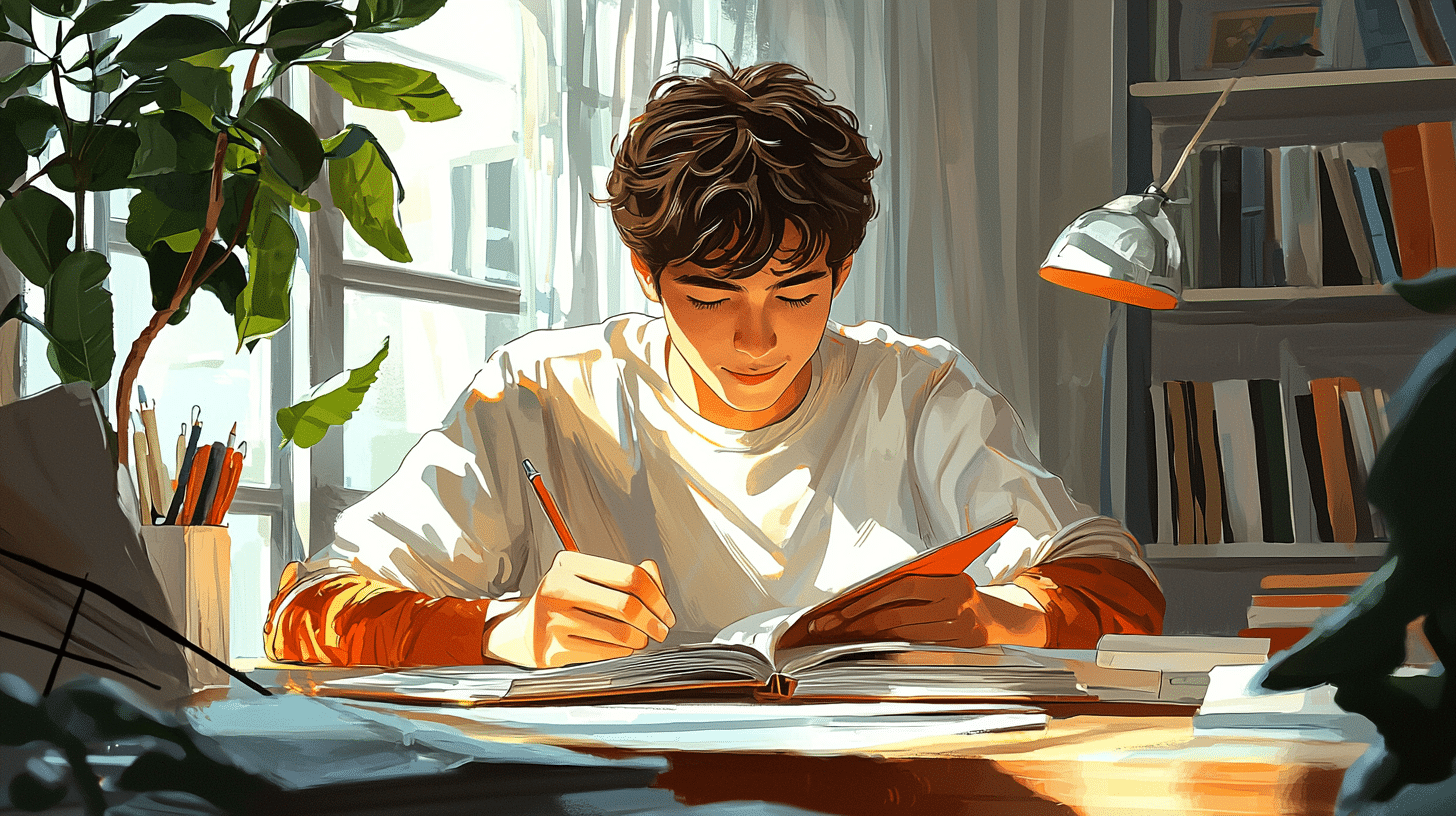Learning a new language is always an exciting journey, and understanding cultural and festive terms is an integral part of this adventure. Welsh, a Celtic language spoken predominantly in Wales, boasts a rich tapestry of tradition and heritage. Understanding the vocabulary associated with festivities and occasions not only helps you communicate more effectively but also deepens your appreciation of Welsh culture.
Welsh Festivals and Celebrations
Wales has a diverse range of celebrations, many of which are unique to its culture. Here are some key terms associated with these festivities:
1. St. David’s Day (Dydd Gŵyl Dewi)
St. David’s Day is celebrated on March 1st and is the feast day of Saint David, the patron saint of Wales. It’s a day filled with parades, traditional Welsh music, and the wearing of national symbols such as the leek and the daffodil.
– **Dydd Gŵyl Dewi**: St. David’s Day
– **Sant Dewi**: Saint David
– **Cenhinen**: Leek
– **Cenhinen Pedr**: Daffodil
– **Gorymdaith**: Parade
– **Dawnsio**: Dancing
– **Cerddoriaeth**: Music
2. Eisteddfod
Eisteddfod is a traditional Welsh festival of literature, music, and performance. The National Eisteddfod is one of the most significant cultural events in Wales, attracting thousands of visitors each year.
– **Eisteddfod**: Festival of literature, music, and performance
– **Cystadleuaeth**: Competition
– **Bardd**: Bard or poet
– **Cerddor**: Musician
– **Perfformio**: Perform
– **Beirniadu**: Judge (as in a competition)
3. Christmas (Nadolig)
Christmas is celebrated with great enthusiasm in Wales, just as it is in many other parts of the world. However, there are some uniquely Welsh aspects to the celebration.
– **Nadolig**: Christmas
– **Sion Corn**: Santa Claus
– **Anrhegion**: Presents
– **Coeden Nadolig**: Christmas Tree
– **Carolau**: Carols
– **Cinio Nadolig**: Christmas Dinner
– **Hosan Nadolig**: Christmas Stocking
4. New Year’s Eve (Nos Galan)
New Year’s Eve is another festive occasion celebrated in Wales, with parties and traditional customs to welcome the new year.
– **Nos Galan**: New Year’s Eve
– **Blwyddyn Newydd**: New Year
– **Addewid Blwyddyn Newydd**: New Year’s Resolution
– **Dathlu**: Celebrate
– **Gwyliau**: Holidays
5. Halloween (Nos Calan Gaeaf)
Halloween, known as Nos Calan Gaeaf in Welsh, is celebrated with various customs, including traditional games and wearing costumes.
– **Nos Calan Gaeaf**: Halloween
– **Ysbrydion**: Spirits
– **Bwgan**: Ghost
– **Gwisg**: Costume
– **Helwi**: Hunt (as in trick-or-treating)
– **Pwmpen**: Pumpkin
6. Bonfire Night (Noson Tân Gwyllt)
Bonfire Night on November 5th marks the anniversary of the Gunpowder Plot. It is celebrated with fireworks and bonfires.
– **Noson Tân Gwyllt**: Bonfire Night
– **Tân Gwyllt**: Fireworks
– **Coelcerth**: Bonfire
– **Llosgi**: Burning
– **Gwledd**: Feast
– **Dathliadau**: Celebrations
Special Occasions and Family Gatherings
Welsh culture places significant importance on family and community gatherings. Below are some terms related to special occasions and family events:
1. Weddings (Priodasau)
Weddings in Wales are joyous occasions filled with traditions and celebrations.
– **Priodas**: Wedding
– **Priodi**: To marry
– **Gwledd Briodas**: Wedding Feast
– **Anrheg Priodas**: Wedding Gift
– **Cymar**: Spouse
– **Modrwy Priodas**: Wedding Ring
2. Birthdays (Pen-blwydd)
Birthdays are celebrated with parties, cakes, and well-wishes from family and friends.
– **Pen-blwydd**: Birthday
– **Pen-blwydd Hapus**: Happy Birthday
– **Anrhegion**: Gifts
– **Cacen Pen-blwydd**: Birthday Cake
– **Parti**: Party
– **Dathliad**: Celebration
3. Anniversaries (Pen-blwydd Priodas)
Anniversaries, particularly wedding anniversaries, are special occasions marked by family gatherings and celebrations.
– **Pen-blwydd Priodas**: Wedding Anniversary
– **Blwyddyn**: Year
– **Dathlu**: Celebrate
– **Anrheg**: Gift
– **Teulu**: Family
4. Funerals (Angladdau)
Funerals are solemn occasions, often accompanied by specific traditions and customs.
– **Angladd**: Funeral
– **Claddedigaeth**: Burial
– **Gwasanaeth**: Service
– **Coffa**: Memorial
– **Galar**: Mourning
– **Teulu**: Family
Traditional Welsh Customs
The richness of Welsh culture is also reflected in various customs and practices unique to Wales.
1. Mari Lwyd
Mari Lwyd is a traditional Welsh custom involving a decorated horse’s skull carried from house to house, often during Christmas and New Year.
– **Mari Lwyd**: Grey Mare (the custom)
– **Ceffyl**: Horse
– **Carnedd**: Skull
– **Canu**: Singing
– **Ymwelwyr**: Visitors
2. Calan Mai
Calan Mai, or May Day, is celebrated with various customs to mark the beginning of summer.
– **Calan Mai**: May Day
– **Gwanwyn**: Spring
– **Haf**: Summer
– **Dawnsio**: Dancing
– **Blodau**: Flowers
3. Nos Galan Mai
Nos Galan Mai is the evening before May Day, celebrated with bonfires and festivities.
– **Nos Galan Mai**: May Eve
– **Coelcerth**: Bonfire
– **Dawnsio**: Dancing
– **Haf**: Summer
Common Phrases for Festive Greetings
Knowing how to wish someone well during festive occasions is an essential part of learning a new language.
1. Christmas and New Year
– **Nadolig Llawen**: Merry Christmas
– **Blwyddyn Newydd Dda**: Happy New Year
– **Cyfarchion y Tymor**: Season’s Greetings
2. Birthdays and Anniversaries
– **Pen-blwydd Hapus**: Happy Birthday
– **Llongyfarchiadau**: Congratulations
– **Dymuniadau Gorau**: Best Wishes
3. General Well-Wishing
– **Pob Lwc**: Good Luck
– **Iechyd Da**: Cheers/Good Health
– **Dymuniadau Gorau**: Best Wishes
Conclusion
Learning festive and occasion-related terms in Welsh not only enriches your vocabulary but also offers a window into the vibrant culture and traditions of Wales. Whether you’re celebrating St. David’s Day, attending an Eisteddfod, or simply wishing someone a happy birthday, these terms and phrases will help you connect more deeply with Welsh speakers and their traditions.
Remember, language learning is not just about memorizing words but also about understanding the cultural context in which these words are used. Enjoy your journey into the Welsh language, and may it be filled with many festive and joyful occasions!

